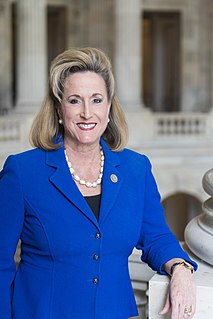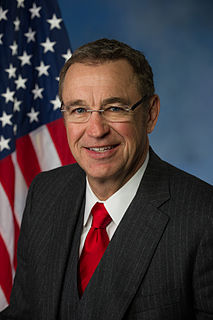A Quote by Sam Graves
The economy needs thriving, job-creating small businesses, but excessive and ill-considered regulations too often get in the way of growth.
Related Quotes
The Fed needs to adopt new tools, on its own and perhaps in cooperation with the other parts of the US government, to improve the economy from the bottom up. This includes increasing facilities for debt forgiveness for under-water mortgages and excessive student loans; increased credit facilities for small businesses and cooperatives; helping to underwrite mechanisms for creating affordable housing in cities; and more restrictive enforcement of financial regulatory rules to help rein in excessive banker risk and pay.
Congress can protect small businesses by providing effective oversight over SBA policies and make sure they take into account the needs of small businesses while also protecting taxpayer dollars. Congress also needs to make sure that new banking regulations do not make it more costly for community banks to lend to small businesses.
And fifth, we will champion small businesses, America's engine of job growth. That means reducing taxes on business, not raising them. It means simplifying and modernizing the regulations that hurt small business the most. And it means that we must rein in the skyrocketing cost of healthcare by repealing and replacing Obamacare.
One nation banking recognises that banks must not be isolated from the rest of the economy. Because banks and small businesses must succeed or fail together, banks must lend to small businesses so we can get the growth and jobs we need for the future. As things stand, that is not happening enough. Lending was down £10.8billion last year.
I call crony capitalism, where you take money from successful small businesses, spend it in Washington on favored industries, on favored individuals, picking winners and losers in the economy, that's not pro-growth economics. That's not entrepreneurial economics. That's not helping small businesses. That's cronyism, that's corporate welfare.
Having what I call crony capitalism, where you take money from successful small businesses, spend it in Washington on favored industries, on favored individuals, picking winners and losers in the economy, that's not pro-growth economics. That's not entrepreneurial economics. That's not helping small businesses. That's cronyism, that's corporate welfare.





























